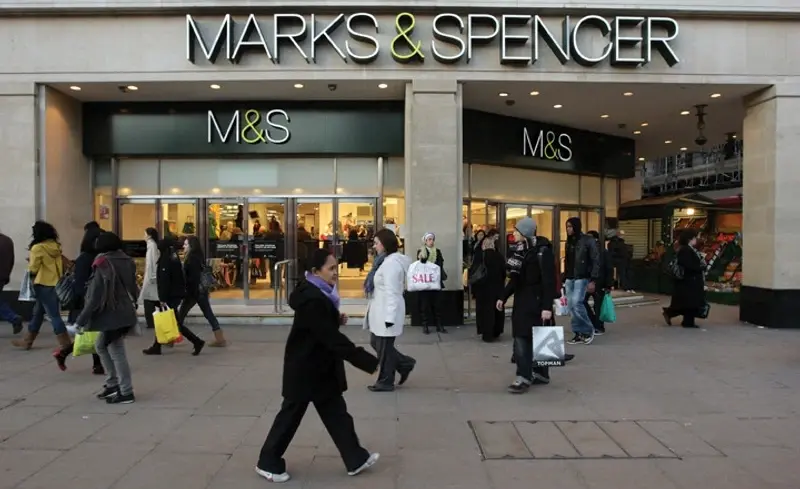
Shares in high street bellwether Marks & Spencer (MKS) fell sharply in early trade on Thursday after a bleak Christmas trading update.
The announcement showed that revenues were held back by a number of ‘disappointing one-off issues’, to quote chief executive Steve Rowe.
Total UK sales for the 13 weeks to 28 December were down 0.6% to £2.76bn, with Food sales outperforming the market, up 1.5% to £1.7bn, but Clothing & Home sales falling 3.7% to £1.06bn.
On a like-for-like basis, UK sales were up 0.2% - the first increase in three years - as the decline in Clothing & Home was more modest at 1.7%, although this was still worse than market expectations of a 0.8% fall.
The update did little to inspire confidence of a recovery for the struggling retailer and investors moved firmly against the shares, marking them down by as much as 10% at one point.
At 11.30am the stock was roughly 9% lower at 199.1p, not far off their lowest in a generation.
DISCOUNTING AND SUPPLY CHAIN PROBLEMS
The company noted ‘strong initial customer reception of Autumn ranges with signs of continuing recovery in core Womenswear.’ However, underperformance in Menswear and Gifting held back what could have been a more promising performance.
Also, online sales of Clothing & Home items were up just 1.5%, well below company forecasts, due to weak furniture sales at the start of the quarter and discounting by rivals at the end of the quarter.
Even the food business, which is the main driver of returns, was held back by problems with waste and supply chain issues.
Although Rowe left full year earnings expectations unchanged, gross margins are now seen ‘around the lower end of guidance’ due to pricing pressure while internal cost savings are seen higher.
Clive Black, director of research at Shore Capital, reduced his current-year earnings per share (EPS) estimate by 2.6% as precautionary measure but suggested that ‘M&S may be entering one step forward, one step back territory, which is much better than one step forward, three steps back of old. If so, brighter times could be ahead, particularly if a more certain and confident UK shopper emerges after the election.’





